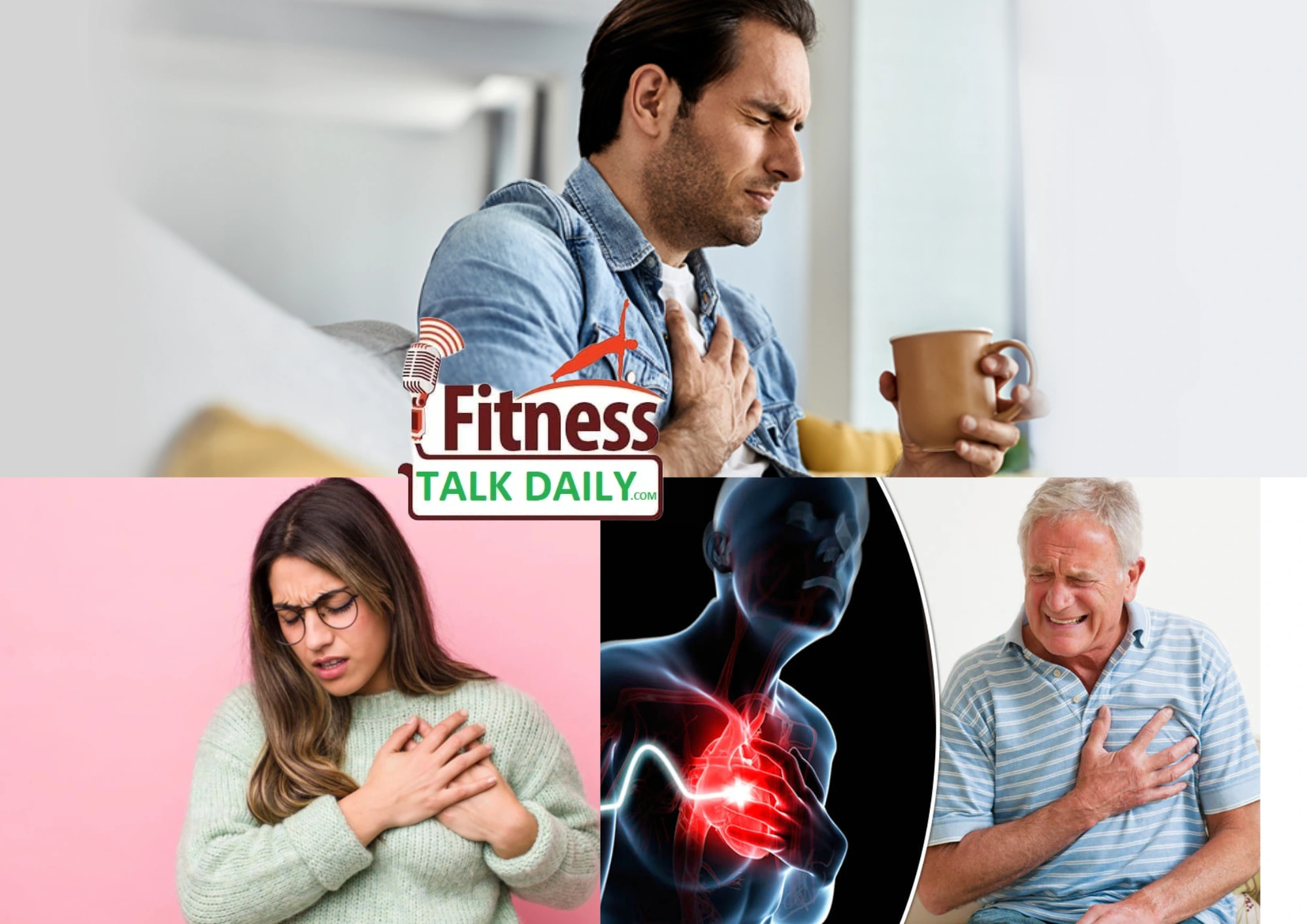Heart disease remains one of the leading causes of death globally, but with awareness and early intervention, many lives can be saved. In this article, we’ll explore the warning signs of a heart attack, how these symptoms differ in men, women, and the elderly, and essential heart attack prevention tips. By recognizing these crucial signs early, you can take immediate action to potentially save a life.
Understanding a Heart Attack: What Happens to the Heart?
A heart attack, also known as a myocardial infarction, occurs when blood flow to the heart muscle is blocked, usually due to a buildup of plaque or a blood clot. When the heart doesn’t get enough oxygen-rich blood, the heart tissue begins to die, which can lead to serious damage or even death.
Warning Signs of a Heart Attack: Symptoms in Men, Women, and the Elderly
1. Common Symptoms of a Heart Attack
The common signs of a heart attack include chest pain, shortness of breath, lightheadedness, and nausea. While these symptoms can appear in both men and women, some key differences exist. Here’s a breakdown:
2. Heart Attack Symptoms in Men
In men, the most typical symptom is chest pain or pressure, often described as a feeling of heaviness or tightness. This pain may radiate to the left arm, neck, jaw, or back. Other signs include:
- Shortness of breath
- Cold sweat
- Lightheadedness or dizziness
- Nausea
3. Heart Attack Symptoms in Women
While women can experience chest pain, they may also have more subtle symptoms compared to men. In addition to chest pain, women may experience:
- Unexplained fatigue
- Shortness of breath
- Pain in the back, neck, or jaw
- Nausea or vomiting
- Indigestion-like feeling
Many women report feeling nauseous or lightheaded, which can easily be mistaken for something less serious, like a stomach bug.
4. Heart Attack Symptoms in the Elderly
The elderly may experience heart attack symptoms differently than younger individuals. Some of the signs include:
- Sudden weakness or dizziness
- Confusion or disorientation
- Pain or discomfort in the chest or upper abdomen
- Fatigue and difficulty breathing
Older adults might not have the classic chest pain, which can delay diagnosis. Therefore, caregivers and family members should be particularly vigilant about sudden changes in behavior or health in elderly individuals.
The Importance of Recognizing Heart Attack Symptoms Early
Recognizing the warning signs of a heart attack early is critical to saving lives. Immediate action, like calling emergency services, can prevent further damage to the heart muscle. The sooner medical attention is provided, the better the outcome for the patient.
Heart Attack Prevention Tips: How to Protect Your Heart
Prevention is key when it comes to reducing your risk of a heart attack. Here are some practical steps you can take to protect your heart health:
| Prevention Tip | Description |
|---|---|
| Healthy Diet | Eat a balanced diet rich in fruits, vegetables, whole grains, and lean proteins to reduce cholesterol and blood pressure. |
| Exercise Regularly | Aim for at least 150 minutes of moderate-intensity aerobic exercise each week. |
| Quit Smoking | Smoking is a major risk factor for heart disease. Quitting can significantly reduce your risk. |
| Monitor Blood Pressure | Keep your blood pressure in check by exercising, eating well, and reducing stress. |
| Control Cholesterol Levels | Regularly monitor cholesterol levels and take medication if needed to keep them within healthy ranges. |
| Reduce Stress | Chronic stress can increase the risk of heart disease. Practice relaxation techniques like meditation or yoga. |
| Limit Alcohol Consumption | Excessive drinking can lead to high blood pressure and increased risk of heart disease. |
By incorporating these tips into your daily routine, you can reduce your chances of experiencing a heart attack.
How to Act in the Event of a Heart Attack
If you or someone else is experiencing symptoms of a heart attack, it’s important to act quickly. Here’s what you should do:
- Call Emergency Services Immediately: Dial emergency services (911 in the U.S.) without delay.
- Chew Aspirin (if advised): If not allergic, chew an aspirin to help thin the blood and prevent further clotting.
- Stay Calm and Rest: Try to stay as calm as possible and avoid any physical exertion.
- Administer CPR (if needed): If the person becomes unconscious and isn’t breathing, perform CPR.
Stay Alert to Heart Attack Warning Signs
Recognizing the warning signs of a heart attack is crucial for prompt action and treatment. Whether you are a man, woman, or elderly individual, it’s important to understand how symptoms might differ across genders and age groups. By maintaining a healthy lifestyle and following heart attack prevention tips, you can significantly reduce your risk of experiencing a heart attack.
Remember, if you suspect someone is having a heart attack, don’t hesitate—call emergency services and take action immediately. Early intervention can save lives!




